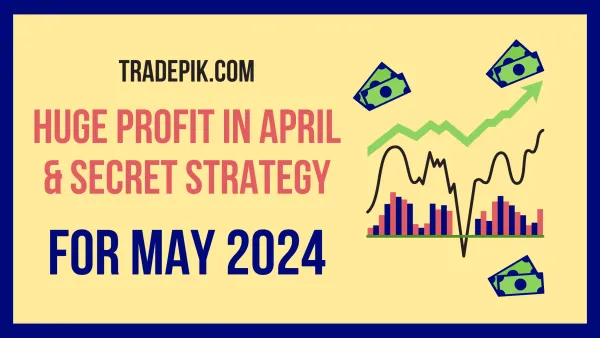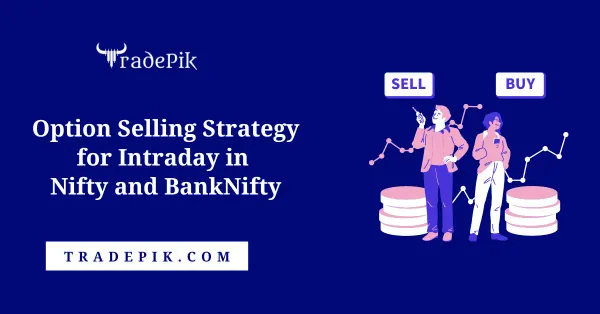Trading Psychology: The Mental Strength to Stay in the Game

One of the key factors to success in trading is maintaining a mental edge. This includes not just having an analytical mindset but also staying mentally strong during tough times. Trading psychology is an important aspect of stock trading but many traders neglect this due to lack of knowledge or some other reasons.
In this article, we will look at different ways traders can maintain their mental strength and keep up with the ever-changing world of finance.
They need to learn the discipline to stick to their plan and know when to come out from any trade. They need to take a deep breath and evaluate their position. They need to learn the discipline of taking profits, cutting losses, and locking in on the opportunities they have when they present themselves.
“A trader needs to be mentally strong. The pressure of the job is one thing that affects traders, but traders also need to maintain a positive attitude in order to do well in this business,” said expert Arthur Thompson. “It’s easy for a trader to get caught up in his emotions and start panicking when he loses money or hits the wrong stocks- it can happen so quickly.”
Why Do Traders Neglect the Power of Psychology?

Many traders neglect the power of psychology because they are more focused on technical trading skills and numbers. In the end, a strong psychological approach can be as beneficial as any other when it comes to being successful in this industry.
A majority of people who enter into trading careers will not last long due to overtrading or letting their emotions dictate trades rather than using strategy and logic. To avoid these problems, try reading some books about trading psychology so you know what pitfalls to avoid before they happen.
Traders often have to think fast and make quick decisions, darting in and out of stocks on short notice. To accomplish this, they need a certain presence of mind that requires practice as well as confidence in oneself.
One way traders can stay mentally strong is by having a proper backtested system that will not only help to take better decisions, but also teach how to avoid distractions.
However, even the best traders have their moments of panic and pressure that can derail them if they are not careful. This is why it’s important to develop mental strength in order to stay in the game and keep making decisions that will make you a successful trader.
Few Tips to follow Trading Psychology
A trading mindset is one of the most important things to have in order to be successful. With that being said, traders need a certain mental strength and composure to not only withstand the inevitable roller coaster ride of trading but also stay in it long enough for their positions to play out.
To find this state of mind, there are many steps you can take:
- Always treat every trade like it’s the most important decision you’ll ever make..
- Be disciplined and focus on your trading plan. It’s easy to get pulled off course when a new opportunity arises, but try not to change what is already working for you.
- Keep in mind that many traders fail because they lose their nerve in difficult times, so maintain a positive attitude and expect good things will happen eventually.
Avoid trading with emotions; find a way to disconnect.
Follow your trading rules and have patience. – Get rid of clutter. Learn to differentiate between important and unimportant information so you can make better decisions in the heat of the moment.- It’s also helpful to have an investment plan that helps you stay focused on your goals and values, so if a trade doesn’t work out, you don’t lose focus on what really matters.
Aspects to trading psychology
There are many aspects to trading psychology; from how quickly traders react in volatile situations, to their risk tolerance levels, everything plays a role. – Traders often have to think fast and make quick decisions, darting in and out of stocks on short notice. To accomplish this, they need a certain presence of mind.
Avoid Overtrading and take pre-calculated risk
In trading, risk and reward are two sides of the same coin. You need to be able to manage your risks by being able to calculate what you’re willing to lose before taking a trade.
Overtrading is a major problem for many traders – Overtrading is when an investor trades too often in the hope that they will recoup their losses quickly by executing on all of their positions at once-but usually this backfires and leads them into further trouble. That’s why you should avoid overtrading and stick to your trading plan only.
Read books and Meditate to build a strong mental framework.
If traders read books and meditate, they can build a strong mental framework for trading. There are many articles on the topic of trading psychology and it is always important to read these before taking a trade.
Reading books will not only help to understand the market behaviour and the way it changes over time but will also help to understand oneself. Meditate is important as well because meditation helps people to focus and concentrate on what they are doing without any distractions that can lead them to make rash decisions.
Keep Yourself away from trading addiction.
What is trading addiction? Trading addiction is an intense attachment to the activity of buying and selling. It can manifest in many ways, from the obsessive compulsion to trade every day, even when there are no trades that make sense, to excessive preoccupation with financial data. Avoid gambling – it will hurt your finances as well as your mental health
Trading in the financial markets is stimulating, exciting, and engrossing. But you can become addicted, just like with actual casino gambling or using illicit drugs. Avoiding the risk of becoming addicted is the key to success, but some people have a hard time resisting temptation. There are warning signs that can help you avoid this kind of activity in your own life and to warn others about it:
- Engaging in risky trades without paying attention to all available information
- Borrowing money from family or friends at high interest rates for gambling on stocks.
- Incurring debt as a result of impulse trading
- Investing more money
So if you have any of these signs then stop what you’re doing and get help.
How can one use market psychology to their advantage?
It is possible to use market psychology to one’s advantage. There are many articles on the topic of trading psychology and it is always important to read these before taking a trade. It is also crucial that traders do their research and make all their backup ready before they enter any trade.
Do your research and make all your backUp ready before you enter in any trade. To avoid making mistakes in trading that result in overtrading, it is important to develop a strong mental framework.
Must Watch video: Mark Douglas 1 Intro to Trading Psychology
I hope now you have understood, why trading psychology is very important. So follow the tips I have shared in the above article and start your trading with confidence. Share your thought about trading psychology in the comment box.
Highly Rated Best Intraday strategy for Bank Nifty Future
We Introduce a new Bank Nifty Future strategy for Intraday. Gave a 90% return in the last 6 months. Please check the link below for more information.
Options Strategies – A Mentorship Program
On the 1st of September, We have launched a new mentorship program for Option strategies, in which we’ll discuss how can we deploy these strategies? What rules we should follow before taking a trade? and what should be our adjustments if the script is moving against your direction?
DISCLAIMER: – we are not a SEBI research analyst. Views posted here only for educational purposes. There is no liability whatsoever for any loss arising from the use of this product or its contents. This product is not a recommendation to buy or sell, but rather a guideline to interpreting specified analysis methods. This information should only be used by investors and traders who are aware of the risk inherent in securities trading.





